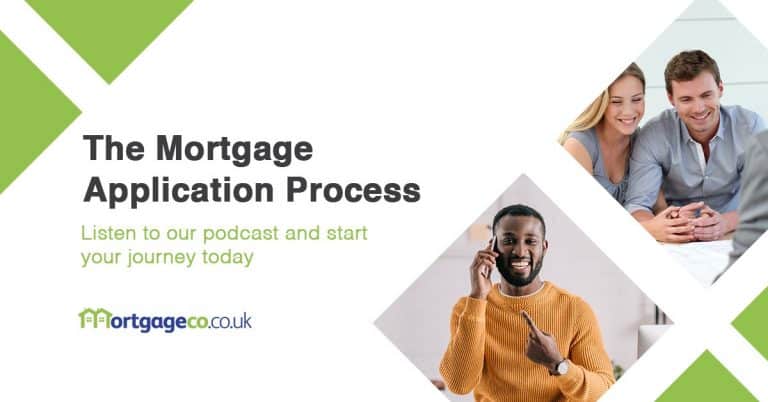Self-Employed Mortgages
- Free No-Obligation Consultation
- Access to Competitive Rates
- We Find the Right Lender for You!
Get in touch for a free, no-obligation chat with an adviser about how we might be able to help.
Home » Self-Employed Mortgages
Self-Employed Mortgages
Self-Employed mortgages with Steven Hargreaves.
Is it harder to get a mortgage if you are Self-Employed?
It can be, but it depends which lenders you approach. You may be very lucky and approach the correct lender for your circumstance, first time, but most lenders’ have varying criteria for Self-Employed applicants. One lender may find it a significant issue, yet another would be happy to assist.
During 2020 and most of 2021 Lenders were cautious about lending to the Self-Employed, and introduced a more rigorous application process, mainly due to Covid pandemic, but the majority of lenders have now reverted to the criteria pre-covid.
What if I only have one year’s accounts can I still get a mortgage?
There are lenders that will accept one year’s accounts, but there aren’t many. Most lenders would require two years. A lot of lenders may look at the broader picture rather than just focussing on your short term Self-Employed status.
Are Self-cert mortgages still available?
No, they haven’t been available for some time and the majority of lenders don’t expect them to return.
Can you get a joint mortgage if one person is Self-Employed?
Yes you can, although they way the lender assesses your income may differ.
If you are Self-Employed, running a Limited Company, the Lender may assess your affordability using your salary and dividends or your retained profit. If you’re a Sole Trader, they would use your net profit.
If you’re employed, the lender would use your gross salary.
As you can see from the above, two individuals earning the same salary could be assessed differently by the Lender, because they consider the gross income of the employed individual but use the net income (after tax & NI) for the self employed person.
When assessing a Self-Employed applicant it’s important to establish whether it’s a Limited company and if so, whether they’re a hundred percent shareholder, or whether they are a Sole Trader, as that will all be taken into account when assessing affordability. This is why a lot of Self-Employed people think it’s trickier getting a mortgage, but approaching the right lender who looks at their income favourably can make it much easier.
Speak To An Expert
Our team of experts are experienced in catering for a range of clients, needs and property types. With a vast array of qualifications and accreditation from the financial accreditation agency you can be confident of quality service and sound advice.
What is the difference between someone who is Self-Employed and a Limited Company Director?
A Limited Company Director would normally be somebody that is a 20% or more shareholder of the company. A Limited Company Director is also assessed slightly differently to a Sole Trader. Many Company Directors take a small basic salary which is topped up with dividends, and some lenders will assess this income.
Other lenders may use the retained net profits of the company, so they would look at that individual’s share of that company’s profits. This sometimes means they achieve significantly more affordability than when the lender is looking solely at their dividends and basic salary.
What documents do I need when applying for a Self-Employed mortgage?
This is fairly standard right across the board, the majority of lenders would want what they call SA302 (tax year overview and tax calculations) which you can obtain from HMRC or via your accountant, who would normally have their own system. The lender may also want to see accounts for the business to assess its performance.
For example, a Limited Company Director who is a 100% shareholder (owns the whole company) and on a large salary, would not necessarily be able to borrow based on that full salary, if the business is making a loss. The Director can pay himself whatever salary he want but this doesn’t mean that the Company can afford to pay it or that the wages are sustainable and that’s why Lenders look at the performance and profits of the business.
It is worth speaking to your accountant and getting a copy of the last two years accounts, tax reviews and tax calculations prior to speaking to a broker, because with that sort of information we can ordinarily work out how much you can borrow, and approach a lender that specifically assesses your situation favourably.
Is Buy to Let available for the Self-Employed?
Yes. It actually may be a little bit easier in a lot of cases, because the majority of Buy to Let lenders assess the mortgage based on the expected income from the property itself, rather than your own personal income. They’re more interested with how much yield (or rent) that property will provide, and will work their assessments and calculations based on that. Some lenders require tax overviews and tax calculations, but others may not, if they are satisfied with the yield.
How does Remortgaging work for the Self-Employed?
Again, there are no differences whatsoever compared with an employed person. You are asked to provide evidence of your earnings, so for an employed applicant you’ll be asked for the last three months payslips and the latest P60, whereas a Self-Employed applicant would need to present their accounts or tax calculations.
Each lender has slightly different criteria and it can be really beneficial seeking out a Mortgage Broker to help you find the lender who looks at your income more favourably, as this may have a huge impact on the amount you’re able to borrow. Whether you run a Limited Company or are a Sole Trader seeking independent mortgage advice is highly recommended.
YOUR HOME MAY BE REPOSSESSED IF YOU DO NOT KEEP UP REPAYMENTS ON YOUR MORTGAGE
Useful Links
- Self-Employed Mortgages
- Limited Company Director Mortgages
- Self-Employed Mortgages One Years' Accounts
- Buy to Let Self-Employed
- Documents Needed for a Self-Employed Mortgage
- Joint Mortgage One Applicant Self-Employed
- What Income do Mortgage Companies look at Self-Employed
- Are Self-Cert Mortgages Still Available
Why MortgageCo?
- Raising The standards of financial advice
- Making financial advice accessible to all
- Trusted & stress-free financial advice
- Friendly, personable advisors











